Personal Details: Lévesque, Stéphane
maître Auteur | Core Author | Stammautor
Stéphane Lévesque, holds a M.A. from Laval University and Ph.D. from the University of British Columbia (Canada). He is professor (adjunct) of history education at the University of Ottawa and the Founding-director of the Virtual History & Stories Lab (VH Lab) of Canadian Foundation for Innovation. In 2011, he was Visiting Professor of digital history at Umeå University in Sweden. In 2017, he received the ORION award for exemplary leadership and innovation in education from the Colleges and Universities of Ontario. His research focuses on students' historical thinking and consciousness, Canadian history, citizenship education, and new media and technology in education. His most recent publications include Enseigner la pensée historique (Critical Thinking Consortium, 2013), Thinking Historically: Educating Students for the 21st century (University of Toronto Press, 2008), and Beyond History for Historical Consciousness (University of Toronto Press, 2020).
Stéphane Lévesque, est détenteur d’une maitrise de l’Université Laval et d'un doctorat de l’Université de la Colombie-Britannique (Canada). Il est professeur en didactique de l’histoire à l'Université d’Ottawa (Canada) et directeur-fondateur du Laboratoire d’histoire virtuelle et récits de la Fondation canadienne pour l’innovation. En 2011, il a été Professeur-invité en histoire numérique à l’Université Umeå en Suède. En 2017, il a reçu le prix ORION des Collèges et Universités de l'Ontario pour son innovation et leadership en éducation. Ses travaux de recherche portent sur la pensée et la conscience historique, l’histoire canadienne, l’éducation à la citoyenneté et l’intégration des technologies en histoire. Ses plus récentes publications incluent notamment Enseigner la pensée historique (Critical Thinking Consortium, 2013), Thinking Historically: Educating Students for the 21st century (University of Toronto Press, 2008) et Beyond History for Historical Consciousness (University of Toronto Press, 2020).
Stéphane Lévesque, hat an der Laval University sein Studium abgeschlossen und wurde an der University of British Columbia (Kanada) promoviert. Er ist aussenplanmässiger Professor für Geschichtsdidaktik an der University of Ottawa und Gründungsdirektor des Virtual History & Stories Lab (VH Lab) der Canadian Foundation for Innovation. Im Jahr 2011 war er Gastprofessor für digitale Geschichte an der Universität Umeå in Schweden. 2017 erhielt er den ORION-Preis für vorbildliche Führung und Innovation in der Bildung von den Colleges and Universities of Ontario. Seine Forschungsschwerpunkte sind historisches Denken und das Geschichtsbewusstsein von Schüler:innen, kanadische Geschichte, staatsbürgerliche Bildung sowie neue Medien und Technologie in der Bildung. Zu seinen jüngsten Veröffentlichungen gehören Enseigner la pensée historique (Critical Thinking Consortium, 2013), Thinking Historically: Educating Students for the 21st century (University of Toronto Press, 2008), und Beyond History for Historical Consciousness (University of Toronto Press, 2020).
http://education.uottawa.ca/en/people/levesque-stephane-
Quel lien existe-t-il entre l’histoire et l’identité?
What Is the Relationship Between History and Identity? | Was ist die Beziehung von Geschichte und Identität?
Quel lien existe-t-il entre l’histoire et l’identité?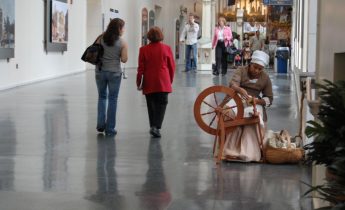
This article analyzes historical consciousness and disciplinary history as theoretical constructs in the global context of identity politics.
-
What’s History For?
A quoi sert l’histoire? | Wozu dient Geschichte?
What’s History For?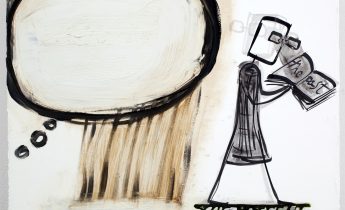
Questions on the purpose of history and history traditions are far from new, but they reach us as educators with greater force then ever. Defining...
-
Removing the “Past”: Debates Over Official Sites of Memory
Déboulonner le “passé”: les sites officiels de la mémoire | “Vergangenheit” entfernen: Debatten über staatliche Erinnerungsorte
Removing the “Past”: Debates Over Official Sites of Memory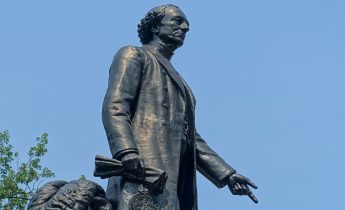
How should governments respond to demands for removing historic monuments and renaming sites of memory? What role could historical...
-
Seeing the “Big Picture” in Canadian History
Comment voir les “grands tableaux” de l’histoire canadienne | Ein Blick auf das “Gesamtbild” der kanadischen Geschichte
Seeing the “Big Picture” in Canadian History
To pass judgement on the 'progress' or 'decline' of a society over time, a big-picture perspective on history is needed. These big-picture frameworks are also important...
-
Should History Promote National Identification?
L’histoire devrait-elle promouvoir les identités nationales? | Soll Geschichte die nationale Identifikation fördern?
Should History Promote National Identification?Today’s Facebook kids live in a global village and speak multiple languages. The tide of cosmopolitanism is running in their favour. Yet, the teaching...
-
History in an Age of “Truth and Reconciliation”
Histoire à l’ère de “la vérité et la réconciliation” | Geschichte in der Ära von “Wahrheit und Aussöhnung”
History in an Age of “Truth and Reconciliation”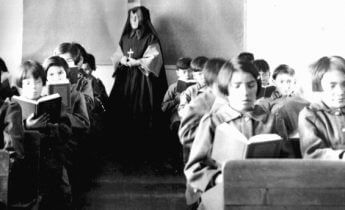
The recent report of the Truth and Reconciliation Commission (TRC) of Canada called on educational institutions to decolonize the educational system of Canada.
-
Going beyond “Narratives” vs. “Competencies”: A model of history education
Jenseits von “Narrativen” vs. “Kompetenzen”: ein Modell historischer Bildung | Au delà du clivage « récits » vs. « compétences »: modèle de l’éducation historique
Going beyond “Narratives” vs. “Competencies”: A model of history education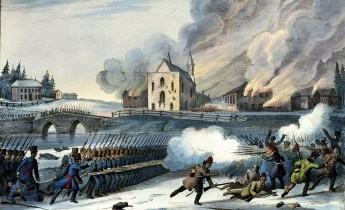
Poor Québec history program! It is going through another round of ministerial revisions. This time, the competency-based approach of the current course of study was deemed "too radical."
-
Breaking away from Passive History in the Digital Age
Schluss mit der “passiven Geschichte” im digitalen Zeitalter
Breaking away from Passive History in the Digital Age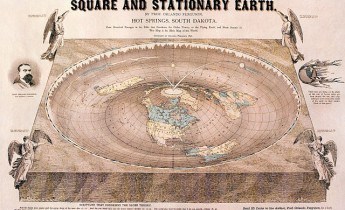
In Teaching History in the Digital Age, Mills Kelly recounts a teaching anecdote with millennial students. At the beginning of a history class, an avid student informed Kelly that he had "fixed" the Nuremberg video they watched during the previous session. Stunned, Kelly decided ...